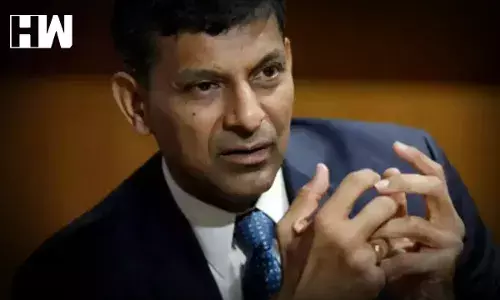New Delhi: Former Reserve Bank of India (RBI) Governor Raghuram Rajan has chimed on a discussion of RBI rates,saying that the RBI will have to raise rates at some point in the future as inflationary pressures build and calls for higher policy rates grow.
He also told legislators and bureaucrats that raising policy rates to combat inflation is an investment in the country’s economic stability, not “some anti-national action.” Mr Rajan said on LinkedIn that the struggle against inflation is never done, and that the central bank should remember “what happened the last time around?”
While the RBI has kept policy rates unchanged to boost domestic economy, its concern over increasing inflation has prompted them to raise the inflation forecast for this fiscal year to 5.7 percent from 4.5 percent. It has also lowered its growth prediction to 7.2 percent from 7.8 percent, emphasising the importance of controlling inflation.
In a LinkedIn post, Mr. Rajan urged lawmakers and bureaucrats to see that raising policy rates is not “some anti-national action favouring foreign investors,” but rather “an investment in economic stability, the greatest beneficiary of which is the Indian citizen.”
He then uses an example from his time as RBI governor (September 2013 to September 2016), when he claimed that India was in the midst of a full-fledged currency crisis, with inflation reaching 9.5 percent. He said that the RBI hiked the repo rate from 7.25 percent to 8% in September 2013 to combat inflation. “We decreased the repo rate by 150 basis points to 6.5 percent as inflation fell,” he continued.
Mr Rajan said that his initiatives contributed to the economy’s stabilisation and growth, which increased from 5.91 percent in June-August 2013 to 9.31 percent in June-August 2016. He added that this boosted India’s foreign exchange reserves. However, he acknowledged that not everything was “RBI’s doing,” and that other circumstances played a role.
The former RBI governor said that increasing policy rates is an unpopular move. However, he concluded, “it is essential that the RBI does what it needs to, and the broader polity gives it the latitude to do so.”
As an independent media platform, we do not take advertisements from governments and corporate houses. It is you, our readers, who have supported us on our journey to do honest and unbiased journalism. Please contribute, so that we can continue to do the same in future.

